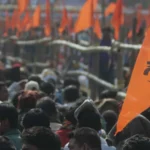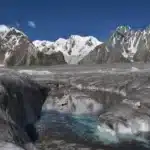Prime Minister Narendra Modi’s government has actively promoted India as an economic giant and a vital player in global security. However, the unresolved conflict in Kashmir, and the prevalent human rights abuses in Kashmir casts a long shadow on this image. The Indian government’s actions there raise concerns about its commitment to human rights and self-determination. This history of heavy-handed tactics weakens India’s credibility when dealing with sensitive issues like Kashmir and its recent diplomatic tensions with China.
This complex situation requires a deeper understanding. Increased international access to Kashmir, along with greater scrutiny and accountability for the Indian government’s actions, are crucial.
Kashmir: A Tale of Oppression and Resistance
The core issue in Kashmir is the conflict between Indian occupation and Kashmiri self-determination.
This threatens both human rights and international peace. Indian Defence Minister Rajnath Singh’s narrative that the locals of Pakistan Administrated Kashmir are also endorsing the integration with India, is not only misleading but also has no respect for the wishes and rights of the Kashmiri people.
Contrary to Singh’s claims, the real scenes are far grimmer than it was thought. The people of Azad Jammu and Kashmir inhabit the area strongly, refusing the idea of becoming a part of India on the basis that the dangers of ethnic and religious persecution in case of a merger, are very high and also pose a threat to the cultural identity of region, resulting from such a merger. The account of an impending Muslim genocide in both Kashmir and India has played a role in Kashmiris’ minds, making the situation even worse, consequently embellishments of resistance against Indian occupation.
Besides six lakh soldiers another three lacs of Indians are serving as occupiers in the part of Kashmir, which is under the control of the Indian Army. This reminds us that the region of
an ever-inclusive oppressive military machine that controls its newspapers and mass media is experiencing extrajudicial murders, disappearances of people, torture, and sexual abuses of Kashmiri civilians, by Indian soldiers. The whole world is surprised and shocked by these heinous deeds. The need for an inquiry at the international level, to reveal the facts of secret graves and human rights abuses in the region is not only appropriate but also necessary to get the power to the predator, and the weak.
Distinguished human rights activist Gautam Navlakha’s admission of 6,700 anonymous graves in occupied Kashmir demonstrates, how severe the human rights abuses carried out by Indian security forces, have gone.
Through the systematic abuse experienced by Kashmiri women with an estimated 11,000 cases of rape between 1989 and 2020, the brutality of Indian occupation and the need for outside intervention to handle these atrocities have been once again brought to the fore.
On top of that, the Modi Government’s unshakable suppression of political dissent and fundamental rights in Kashmir and beyond has aggravated the conflicts, fostering new feelings of anger among the local community. The repeal of Article 370, which allowed for special self-rule in Jammu and Kashmir, and then subsequently the implementation of harsh laws like the Public Safety Act (PSA) have essentially stripped Kashmiris of their right to voice their opinions and their right to self-determination.
Also Read: Palestinian and Kashmiri Freedom Struggles: A Comparison
India-China Relations: A Story of Ineptitude and Insecurity
Concurrently, India’s relationship with China has also deteriorated recently, particularly following the Doklam standoff. Despite Defence Minister Rajnath Singh’s assurances of India’s preparedness, the outcome suggests potential shortcomings in India’s military and diplomatic capabilities.
Defense Minister Singh’s claims of India’s ability to counter any Chinese threat don’t reflect the reality. India’s power and economic strength lag behind China’s. While India ranks fourth in acquiring military resources, its $72 billion defense budget pales in comparison to China’s staggering $225 billion allocation. This vast disparity in spending exposes India’s limitations in military capability and potentially reveals shortcomings in its defense infrastructure and strategy.
On the other side, Indian External Affairs Minister Jaishankar’s comments suggest a possible difference in approach between him and Defense Minister Singh regarding China. Singh’s strong rhetoric may not reflect the full picture. Such a failure is more than physical as it involves the idea of dharma, the fundamental building block of the nation. The rise of China and its increased aggressiveness speak even louder of India’s inability to defend itself, despite New Delhi’s claims of being a military power. The failure of the Modi Administration to respond adequately to the growing threat from China brings into doubt not only its capacity but also its credibility in a global context.
Moreover, the current Government of Modi has a bad tradition of using fake flag operations as fire-starters to increase nationalist fervour and ensure electoral wins, which are critical for Indian democracy.
A candidate for Governor Satya Pal Malik now calls for a Supreme Court-monitored investigation, breaking the long-established norm of the Modi Government, considering national security as a politically sensitive fee-for-all. The timing of the crisis only suggests that the elections are on the horizon. Prominent Indian lawyer, Prashant Bhushan, recently warned the public of a pending false flag operation, akin to the ones carried out in the 2016 and 2019 pre-Lok Sabha elections. Such a warning shows how reckless and desperate the Modi government can go just to gain control.
Conclusion: Towards Truth and Accountability
Eventually, the words spoken by Minister of Defence, Mr Rajnath Singh, concerning Kashmir and the relationship India has with China, cannot only lure people into the trap of lies but pose a real threat in their approach to change the true states of things by concealing the real state of events. The international world community should accept that the subterfuge of power in India is just the facade and it is responsible for the unpleasant truths behind the scenes. It is just a joint work of the community that ensures India its actions where justice can be realized and peace is sustainable in the region. As we witness the efforts being made, we must express our solidarity with the pillaged and hold those who distort and discriminate against to account.
The views expressed in this article are the author’s own. They do not necessarily reflect the editorial policy of the South Asia Times.
Waleed Sami is a postgraduate student specializing in Strategic Studies at the Centre for International Peace and Stability (CIPS), which is housed within the esteemed National University of Science and Technology (NUST) in Islamabad. Prior to pursuing his postgraduate studies, Waleed earned his bachelor's degree in International Relations from the National Defence University Islamabad (NDU).

![An Indian police officer fires a tear gas shell during a protest in Srinagar last year [File: Danish Ismail/Reuters]](https://southasiatimes.org/wp-content/uploads/2024/04/c8ba2da9f3db4467aeeaf9895a089452_18-1.webp)



Add a Comment